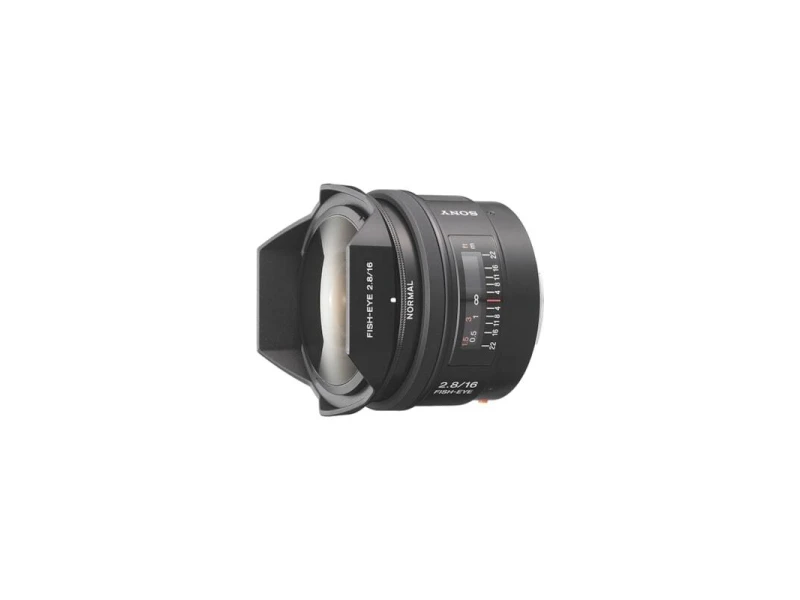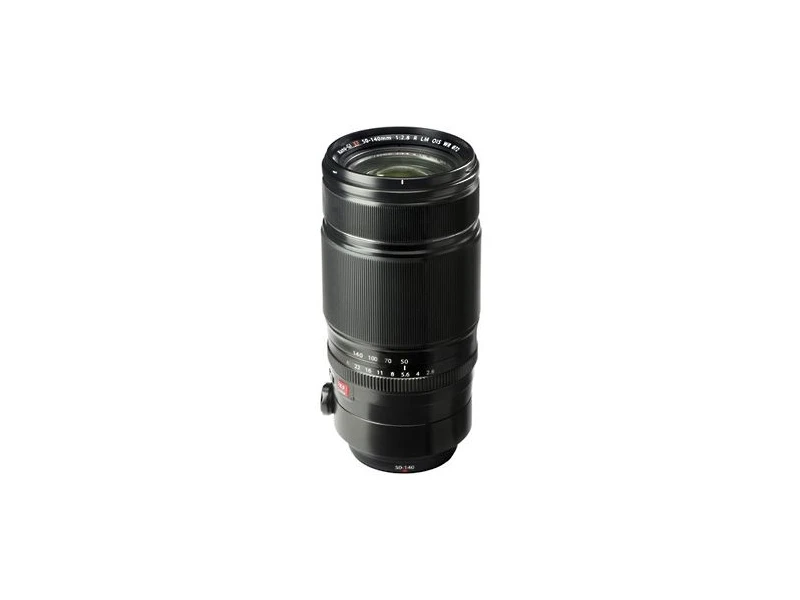Sony 16mm F2.8 Fisheye vs Fujifilm Fujinon XF 50-140mm f/2.8 R LM OIS WR
Sony 16mm F2.8 Fisheye vs Fujifilm Fujinon XF 50-140mm f/2.8 R LM OIS WR
When comparing Fujifilm Fujinon XF 50-140mm f/2.8 R LM OIS WR and Sony 16mm F2.8 Fisheye, which one is better?
1. Lens Weight Comparison
Regarding the weight of the lenses, Sony 16mm F2.8 Fisheye is the winner with a weight of 400 g compared to the 995 g that Fujifilm Fujinon XF 50-140mm f/2.8 R LM OIS WR weighs.
Winner: Sony 16mm F2.8 Fisheye
Regarding weight: The weight of a lens is something you need to consider, since you have to carry it around on the camera as long as you're shooting. It adds to the total weight of your camera and it's important to keep the weight low if you get tired in your arms when taking photographs or filming.
2. Lens Mount Comparison
The lenses each feature different lens mounts — the Sony 16mm F2.8 Fisheye features a Sony E while the Fujifilm Fujinon XF 50-140mm f/2.8 R LM OIS WR features a Fujifilm X — and because of this the preference varies. If you have a compatible camera, then of course that lens will be a better choice for you.
Winner: Tied — It depends on your gear
Regarding lens mount: Popular lens mounts are Canon RF and EF, Micro Four Thirds and Nikon Z. Different lens mounts lets you connect different lenses to camera bodies, but some might not be compatible. This can be helped by using an adapter, like a Canon EF to RF adapter.
3. Largest Aperture Comparison
Both lenses share the same aperture of 2.8 — this means that you may buy both Sony 16mm F2.8 Fisheye and Fujifilm Fujinon XF 50-140mm f/2.8 R LM OIS WR in this regard; they''re the same.
Winner: Tied
Regarding largest aperture: A lower aperture number means that the widest aperture on the lens is larger. This means that more light will hit the sensor and also that the depth of field will be shallower, better separating your subject from the background.
4. Focus Distance Comparison
Sony 16mm F2.8 Fisheye features a minimum focus distance of 20 cm while Fujifilm Fujinon XF 50-140mm f/2.8 R LM OIS WR has a minimum focus distance of 100 cm. Depending on your shooting style, the Sony 16mm F2.8 Fisheye might be a better choice.
Winner: Sony 16mm F2.8 Fisheye
Regarding minimum focus distance: The minimum focus distance of a lens is the smallest distance from the lens to the subject you want to be in focus; subjects closer than the lens' minimum focus distance will not be in focus. Whether or not this is important to you is up for you to decide, but some want to take close photos and videos and in those cases it's important to have a lens with a low minimum focus distance.
5. Lens Type Comparison
The Sony 16mm F2.8 Fisheye is a Prime lens while the Fujifilm Fujinon XF 50-140mm f/2.8 R LM OIS WR is a Zoom lens. Whether or not a zoom lens or a prime lens is what you need, is up to you to decide; they both have their respective strengths and weaknesses.
Winner: Tied — It depends on your gear
Regarding type: There are two types of lenses; zoom lenses and prime lenses. Prime lenses have a fixed focal length and cannot be zoomed, while zoom lenses have a focal length range and can be zoomed in to get closer to the subject. Prime lenses are usually lighter, cheaper and let in more light. Zoom lenses are more versatile but are more expensive since they require a more advanced lens design.
6. Weather Seal Comparison
Both Sony 16mm F2.8 Fisheye and Fujifilm Fujinon XF 50-140mm f/2.8 R LM OIS WR feature a weather sealed design, making them both great in that aspect.
Winner: Tied — both have this feature
Regarding weather seal: A lens that is weather sealed will perform better over time if you're using the lens in harsh conditions where it's wet or dusty. It may not matter if you're merely using your lens in a studio or in your home.
7. Full Frame Comparison
Sony 16mm F2.8 Fisheye covers a full frame sensor while Fujifilm Fujinon XF 50-140mm f/2.8 R LM OIS WR does not. If you have a full frame camera then Sony 16mm F2.8 Fisheye is the only choice for you in this comparison.
Winner: Sony 16mm F2.8 Fisheye
Regarding full frame coverage: All lenses do not cover full frame sensors, but not all cameras are full frame cameras either. If a lens covers a full frame sensor it can be used on all cameras with a matching lens mount, both full frame and crop sensors, except for medium format cameras.
Specifications
Full specifications table of Sony 16mm F2.8 Fisheye and Fujifilm Fujinon XF 50-140mm f/2.8 R LM OIS WR:
| Sony 16mm F2.8 Fisheye | Fujifilm Fujinon XF 50-140mm f/2.8 R LM OIS WR | |
 |  | |
| Brand | Sony | Fujifilm |
| Weight | 400 g | 995 g |
| Lens Mount | Sony E | Fujifilm X |
| Focal Length | 16 mm | 50 - 140 mm |
| Largest Aperture | 2.8 | 2.8 |
| Anamorphic | No | Missing |
| Minimum Focus Distance | 20 cm | 100 cm |
| Type | Prime | Zoom |
| Aperture Range | 2.8 - 22 | Missing |
| Filter Thread Diameter | Missing | 72 |
| Aperture Blades | 7 | Missing |
| Lens Groups | Missing | 16 |
| Lens Elements | Missing | 23 |
| Image Stabilization | No | Missing |
| Autofocus | Yes | Missing |
| Macro | No | Missing |
| Weather Seal | Yes | Yes |
| Full Frame Coverage | Yes | No |
| Lens Hood Included | Yes | Yes |
